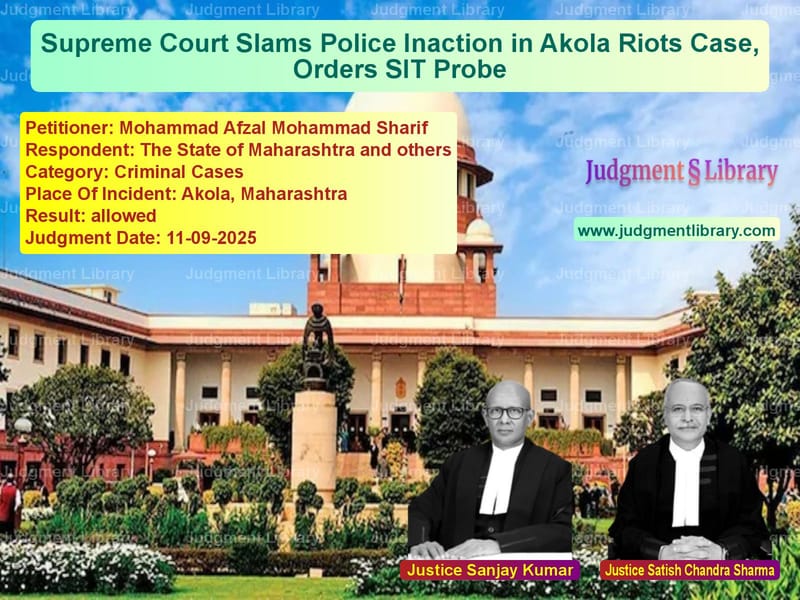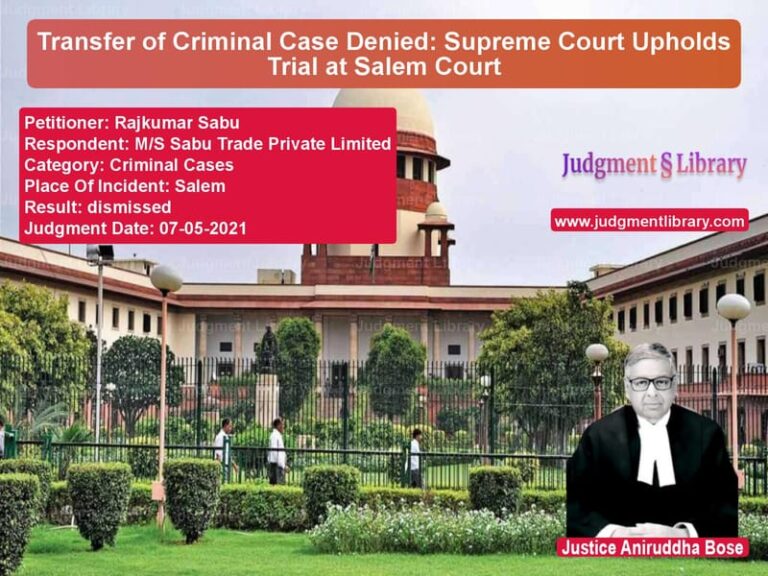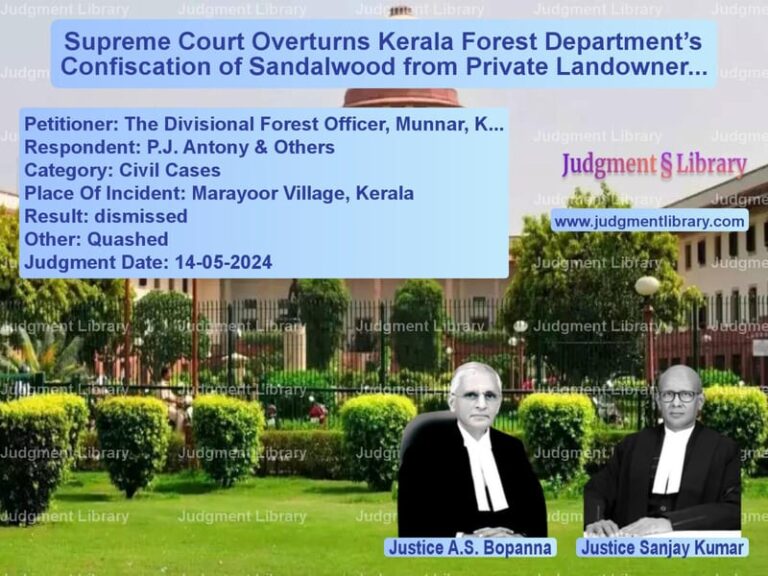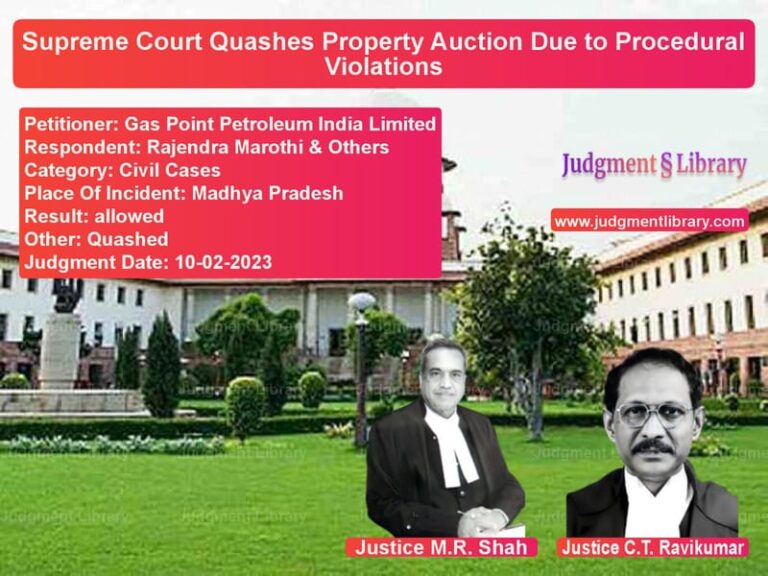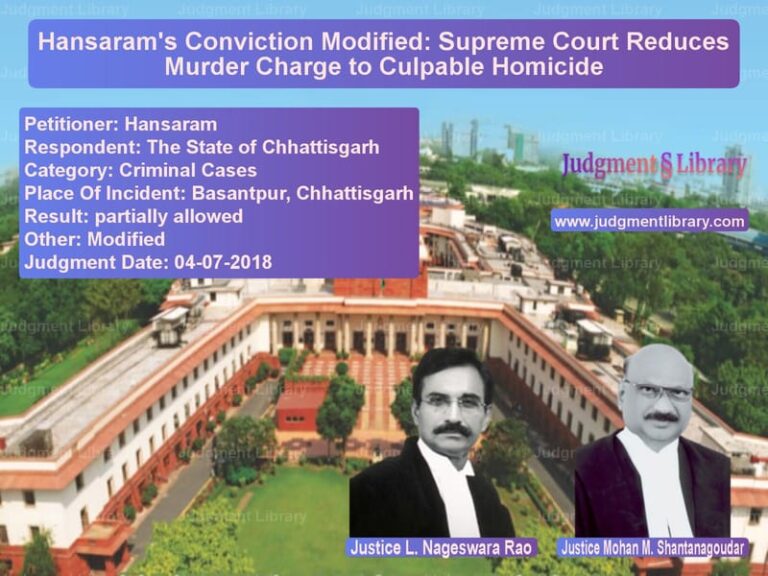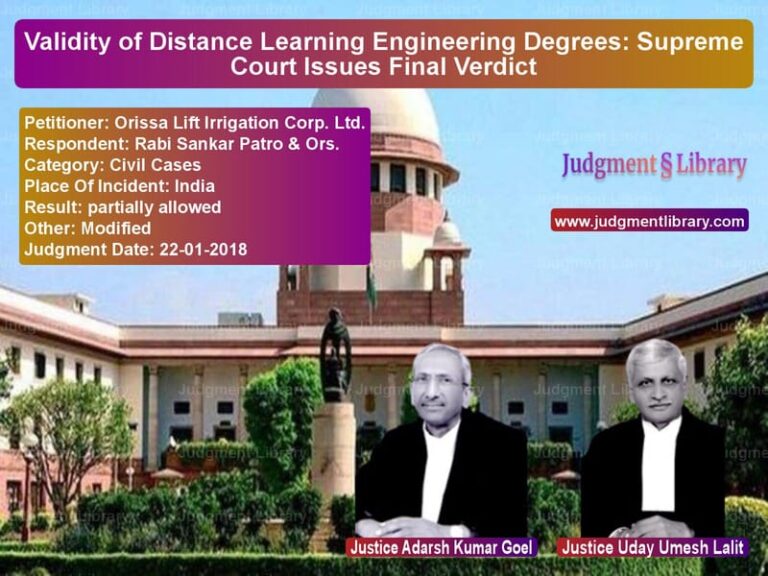Supreme Court Slams Police Inaction in Akola Riots Case, Orders SIT Probe
In a powerful judgment that underscores the fundamental duty of police to protect citizens without bias, the Supreme Court of India has delivered a scathing indictment of police inaction in a case stemming from the Akola communal riots of 2023. The case involved Mohammad Afzal Mohammad Sharif, a 17-year-old who claimed to be both an eyewitness to a murder and a victim of assault during the riots, and his fight for justice against what the court termed as ‘total dereliction of duty’ by the Maharashtra police.
The legal battle began when Afzal approached the Bombay High Court after police failed to register an FIR regarding the attack on him during the communal violence that erupted in Akola City on May 13, 2023. The violence was triggered by a social media post, and according to Afzal’s petition, he became an unintended victim while returning home that fateful night.
The Night of Terror
Afzal’s account to the courts painted a harrowing picture of that night. He stated that while passing over Raj Rajeshwar Setu Bridge in Kholeshwar area between 10:30-11:00 PM, he witnessed four unknown persons assaulting a person in an auto rickshaw with a sword and iron pipe. The victim was screaming, and two of the assailants then turned their attention to Afzal, telling him ‘it was his turn next.’ The other two assailants pulled the injured person out of the auto rickshaw and hit him on the face with an iron pipe, causing him to collapse. Then all four turned on Afzal, damaging his vehicle and assaulting him with weapons on his head and neck until he fell unconscious on the road.
Good Samaritans took the injured teenager to Akola Main Hospital, and later his father moved him to Icon Multispecialty Hospital where he underwent treatment. Medical records confirmed he suffered a head injury requiring sutures, with diagnosis showing ‘assault with head injury’ and conditions including ‘subgaleal haematoma’ and ‘acute hyperdense subdural haemorrhage.’
The Police Response – Or Lack Thereof
What followed the traumatic assault was perhaps equally disturbing – complete police inaction. Afzal claimed that the District Collector along with police personnel visited him at Icon Hospital and recorded his statement. However, no FIR was registered. When no action was taken, Afzal and his father lodged written complaints on June 1, 2023, with both the Police Station Officer of Old City Police Station and Superintendent of Police Sandip Ghuge. Still, nothing happened.
The police version, as presented by Police Inspector Nitin Uttamrao Levaharkar in his affidavit, was dramatically different. He claimed that when an officer went to the hospital to record Afzal’s statement on May 14, 2023, ‘the doctor gave in writing that the injured Mohammad Afzal Mohammad Sharif was not in a position to speak.’ He further stated that ‘none of the relations of the appellant tried to lodge a first information report with the police’ and that since investigation in the murder case was complete, ‘there was no question of handing over the investigation to any other forum.’
The High Court’s Disappointing Response
When Afzal approached the Bombay High Court, the response was equally disappointing. The Division Bench dismissed his writ petition, ‘suspecting his bonafides.’ The High Court found fault with Afzal’s relatives for not trying to lodge a report immediately and questioned why Afzal didn’t voluntarily go to the police station within ‘reasonable time.’ The court dismissed his claims about his statement being recorded, noting that the document produced ‘bore neither the remark of the attending medical officer regarding his fitness nor the signature of the police officer who recorded it.’ Most shockingly, the High Court concluded that the writ petition ‘appeared that the writ petition was tainted with some ulterior motive.’
The Supreme Court’s Scathing Observations
The Supreme Court, in a judgment delivered by Justice Sanjay Kumar with Justice Satish Chandra Sharma, completely disagreed with the High Court’s approach and delivered strong observations about police responsibilities.
The Court emphasized the mandatory nature of FIR registration when cognizable offences are disclosed, quoting extensively from the landmark Constitution Bench judgment in Lalita Kumari vs. Govt. of U.P. and others: “The registration of FIR is mandatory under Section 154 of the Code, if the information discloses commission of a cognizable offence and no preliminary inquiry is permissible in such a situation.”
The Court noted that “the inaction of the officer-in-charge of the Old City Police Station, Akola, despite being made aware of Medico-Legal Case No. 5580, involving the appellant, and his admission in the hospital, and the failure in following through by recording his statement at the earliest opportunity and registering an FIR in that regard, clearly manifests total dereliction of duty on his part, be it deliberate or due to sheer carelessness.”
Regarding the police’s claim that Afzal’s family didn’t pursue the matter properly, the Court firmly stated: “Neither the Police Inspector nor the High Court are correct in their assumption and understanding that it was for the appellant or his relatives to pursue the police to take necessary steps in that regard and that the police were not required to take any steps, despite their knowledge of the commission of a cognizable offence.”
A Message About Police Responsibilities
The Court delivered a powerful message about the expectations from police officers: “Needless to state, when members of the police force don their uniforms, they are required to shed their personal predilections and biases, be they religious, racial, casteist or otherwise. They must be true to the call of duty attached to their office and their uniform with absolute and total integrity. Unfortunately, in the case on hand, this did not happen.”
The judgment particularly criticized Superintendent of Police Sandip Ghuge for his inaction despite receiving a written complaint: “There is no explanation forthcoming as to whether he even undertook an enquiry to satisfy himself about the truth or otherwise of the information received, as mandated by the provision. This conduct on the part of a superior police officer of no less a rank than a Superintendent of Police is indeed a cause for great concern.”
The Court’s Directions
In a significant move, the Supreme Court allowed the appeal and directed: “the Secretary, Home Ministry, Government of Maharashtra, to constitute a special investigation team, comprising senior police officers of both Hindu and Muslim communities, to undertake an investigation into all the allegations made by the appellant, by registering an FIR in connection with the assault upon him on 13.05.2023, and take appropriate action thereon as warranted.”
Additionally, the Court ordered that “the Secretary, Home Ministry, Government of Maharashtra, shall initiate appropriate disciplinary action against all erring police officials, in accordance with law and due procedure, for the patent dereliction of duties” and that “Measures shall also be initiated to instruct and sensitize the rank and file in the police department as to what law requires of them in the discharge of their duties.”
The judgment stands as a powerful reminder that the police are guardians of the law who must act without bias or delay when citizens approach them for protection. For Mohammad Afzal, now 19, the Supreme Court’s intervention represents not just personal vindication but a reaffirmation of every citizen’s right to expect prompt and impartial police action, regardless of their community, age, or circumstances.
Petitioner Name: Mohammad Afzal Mohammad Sharif.Respondent Name: The State of Maharashtra and others.Judgment By: Justice Sanjay Kumar, Justice Satish Chandra Sharma.Place Of Incident: Akola, Maharashtra.Judgment Date: 11-09-2025.Result: allowed.
Don’t miss out on the full details! Download the complete judgment in PDF format below and gain valuable insights instantly!
Download Judgment: mohammad-afzal-moham-vs-the-state-of-maharas-supreme-court-of-india-judgment-dated-11-09-2025.pdf
Directly Download Judgment: Directly download this Judgment
See all petitions in Custodial Deaths and Police Misconduct
See all petitions in Attempt to Murder Cases
See all petitions in Fraud and Forgery
See all petitions in Extortion and Blackmail
See all petitions in Juvenile Justice
See all petitions in Judgment by Sanjay Kumar
See all petitions in Judgment by Satish Chandra Sharma
See all petitions in allowed
See all petitions in supreme court of India judgments September 2025
See all petitions in 2025 judgments
See all posts in Criminal Cases Category
See all allowed petitions in Criminal Cases Category
See all Dismissed petitions in Criminal Cases Category
See all partially allowed petitions in Criminal Cases Category

